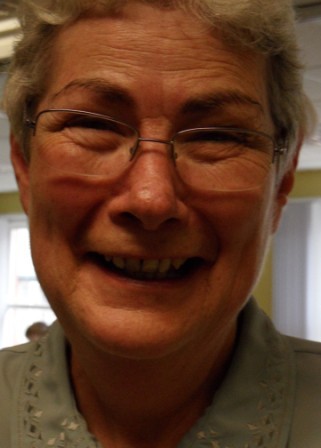Ruth Grayson is the founder of CASC-aid a campaign working against the secularisation of Christmas, and for an increase in charitable giving. We spent a fascinating afternoon hearing from her about what she is trying to do, and were challenged and inspired by her counter-cultural and compassionate message we believe its one that needs to be heard.
In part one of this guest blog, Ruth told us about her own journey with Christmas. Here, she explains a bit more about what this has made her think we should do differently, including explaining CASC-aids courageous 50:50 giving model, and extending Christmas celebrations beyond 25 December.

I have heard it said that one third of the UKs GDP is generated by Christmas-related activity.
“And yet we often hear figures from the UN and aid agencies that say that if we could raise something like £1billion we could rebuild Pakistans infrastructure after floods, or relieve the famine in the Horn of Africa, or rebuild Haiti.
“£1billion for each of these causes sounds like an astronomical sum, but the most conservative figure for the UKs Christmas spending is £15billion annually.
About three years ago, I led a workshop at a Methodist District Synod, and got people to think about what their overall household spending was going to be on Christmas-related activities. I had twenty five people in the session, mainly clergy and church workers, so probably not the best paid people in world, nor the most extravagant… The total figure for them all came to £15,000 – they were absolutely gobsmacked!
I had recently come up with the idea of 50:50 giving where half of our budget at Christmas could be spent on ourselves, and half given away. Straight away, with this principal, £7,500 could have been given from that room without anyone spending a penny more than they had already planned to.
If twenty five people could make this much of a difference, think what a difference more people could make. I genuinely believe it would be easy to raise those type of £1billion lump sums that are needed simply just by us all taking stock of what we usually spend, making a budget and then working out what it would mean to spend half of that and give more to charity.
Poverty is not unsolvable. Charity begins at home and I believe it starts with me. Jesus would say What are you doing about it?
Christmas seems like an easy win place to start to me. If we cant do it then, how can we ever live up to our Lords teaching that we should give up everything to follow him?
But I think it can be so easy to let someone else do the work and assume that someone else is sorting out the big problems of our world, or that were too small to make a difference. We leave it to governments, big charities or other people.
I truly think that we could raise a huge amount of the funds needed by changing to 50:50 Christmas giving. And this is one of the central messages of CASC-aid both to reduce the amount of stress in the lead up to Christmas, and to get back to a more generous Christmas and a fuller understanding of the scriptural basis for giving at this time.
I do acknowledge that it can be difficult for parents to reduce their spending at Christmas, as it does impact on their children and how their peers view them and it can be hard if grandparents or other family members have very different views. But I think that the key is working with the children, involving them in your decision-making and getting them on board then the adults will fall in! Children have a great sense of justice and whats right.
I believe that our churches have a very important role to play in all this and pastorally, they should be concerned about the stress and financial burden of our commercialised Christmas. I would love to see more of them preaching the message that you dont have to spend a lot to have a good time, and that its a time to give gifts to God and share with the poor.
After all, who are we worshipping at Christmas? Is it God? Or is it tradition?
This isnt about reducing our joyful celebration at Christmas in fact its about increasing it… and in some cases, spreading it out.
I dont want to knock all the things that happen in churches in Advent and on Christmas Day itself especially as many of these things lead to more people coming in they are great. But I do think that the church could have an even greater impact by focusing less on cramming everything in before Christmas, and more on continuing them at a more sustainable pace through, and beyond, this time.
We need to counter the mentality that Christmas is over and thats it its totally contrary to the Gospel Jesus is with us always, he doesnt just disappear on Boxing Day!
That period between Christmas and Epiphany is also fairly dead theres nothing for families to do, children are bored, and arguments start. It would be a great time for churches to have their doors open, make themselves available, and put on activities for families and children.
This Christmas, Im praying that we all start to understand what it means to express the joy of the gospel through giving to the rest of the world.
Ruth has also started something new this year which is a special CASC-aid service for Christ the King Sunday (the last Sunday before Advent starts, 20 November this year). Its also known as Stir Up Sunday. Download the service here.